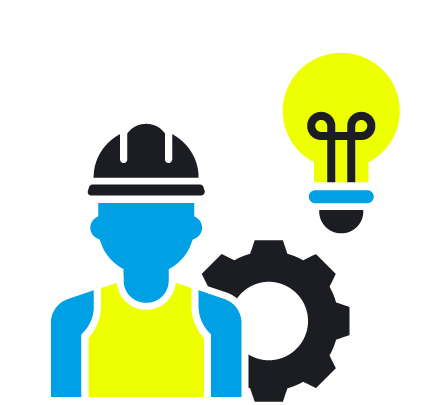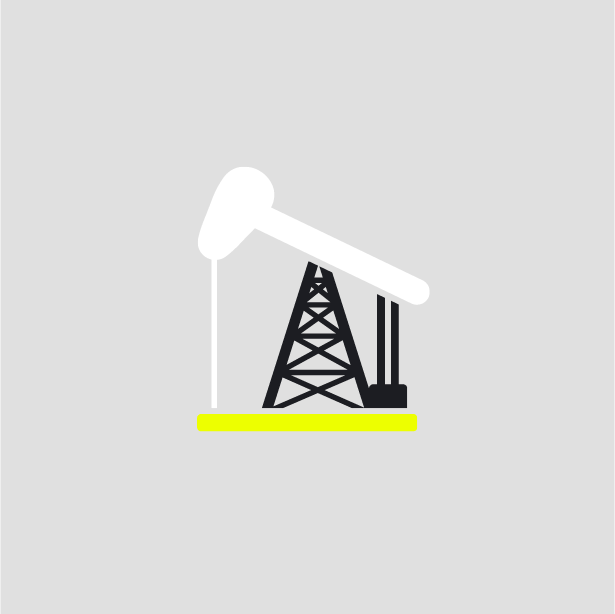-
What happened?
A service station was closed for a tank cleaning and degassing operation by a service provider.
A worker entered the tank to dry it with a squeegee.
He was not trained for and did not have a permit for, confined space entry.
The service provider did not inform the operating company of the worker’s intention to enter the tank.
The worker was at risk of falling, suffocation, being poisoned and dying.

-
Why did it happen?
Lack of knowledge of safety rules (prevention plan, life-saving rules/actions).
Service provider allowed the untrained operator to enter and work on the tank.
Service provider disregarded the operating company recommendation to ‘never enter a confined space unless it is absolutely necessary’ and did not respect the prevention plan.
The service provider did not inform the operating company of the intention to enter the confined space.

-
What did they learn?
Use air fan drying to dry a tank. This has to be systematically set up.
Enter a tank for manual drying only if:
- The authorisation has been given through a prevention plan.
- Prior risk analysis has been carried out.
- An operating procedure has been jointly validated.
Provide a permit to enter a confined space only if:
- it is absolutely necessary to enter.
- a specific prevention plan and associated instructions are established beforehand.
Operating company representative should supervise the task.
If the conditions or procedure change, assess the risks and establish a new prevention plan.
When work begins, remind the service provider to only execute tasks specified in the prevention plan.
If conditions or procedures change, stop work and alert a representative of the operating company.

-
Ask yourself or your crew
How can something like this happen here?
Is confined space entry part of today’s task? If yes: what controls do we have in place to make sure we are safe?
If you saw someone behaving unsafely, how would you intervene?
What should be the penalty for non-compliance?
What else can we learn from this incident? What can we do differently?

Add to homescreen
Content name
Select existing category:
Content name
New collection
Edit collection
What happened?
A service station was closed for a tank cleaning and degassing operation by a service provider.
A worker entered the tank to dry it with a squeegee.
He was not trained for and did not have a permit for, confined space entry.
The service provider did not inform the operating company of the worker’s intention to enter the tank.
The worker was at risk of falling, suffocation, being poisoned and dying.
Why did it happen?
Lack of knowledge of safety rules (prevention plan, life-saving rules/actions).
Service provider allowed the untrained operator to enter and work on the tank.
Service provider disregarded the operating company recommendation to ‘never enter a confined space unless it is absolutely necessary’ and did not respect the prevention plan.
The service provider did not inform the operating company of the intention to enter the confined space.
What did they learn?
Use air fan drying to dry a tank. This has to be systematically set up.
Enter a tank for manual drying only if:
- The authorisation has been given through a prevention plan.
- Prior risk analysis has been carried out.
- An operating procedure has been jointly validated.
Provide a permit to enter a confined space only if:
- it is absolutely necessary to enter.
- a specific prevention plan and associated instructions are established beforehand.
Operating company representative should supervise the task.
If the conditions or procedure change, assess the risks and establish a new prevention plan.
When work begins, remind the service provider to only execute tasks specified in the prevention plan.
If conditions or procedures change, stop work and alert a representative of the operating company.
Ask yourself or your crew
How can something like this happen here?
Is confined space entry part of today’s task? If yes: what controls do we have in place to make sure we are safe?
If you saw someone behaving unsafely, how would you intervene?
What should be the penalty for non-compliance?
What else can we learn from this incident? What can we do differently?
During a cleaning operation, a worker entered a fuel tank to dry it with a squeegee. He was not trained and did not have a permit for confined space entry.














